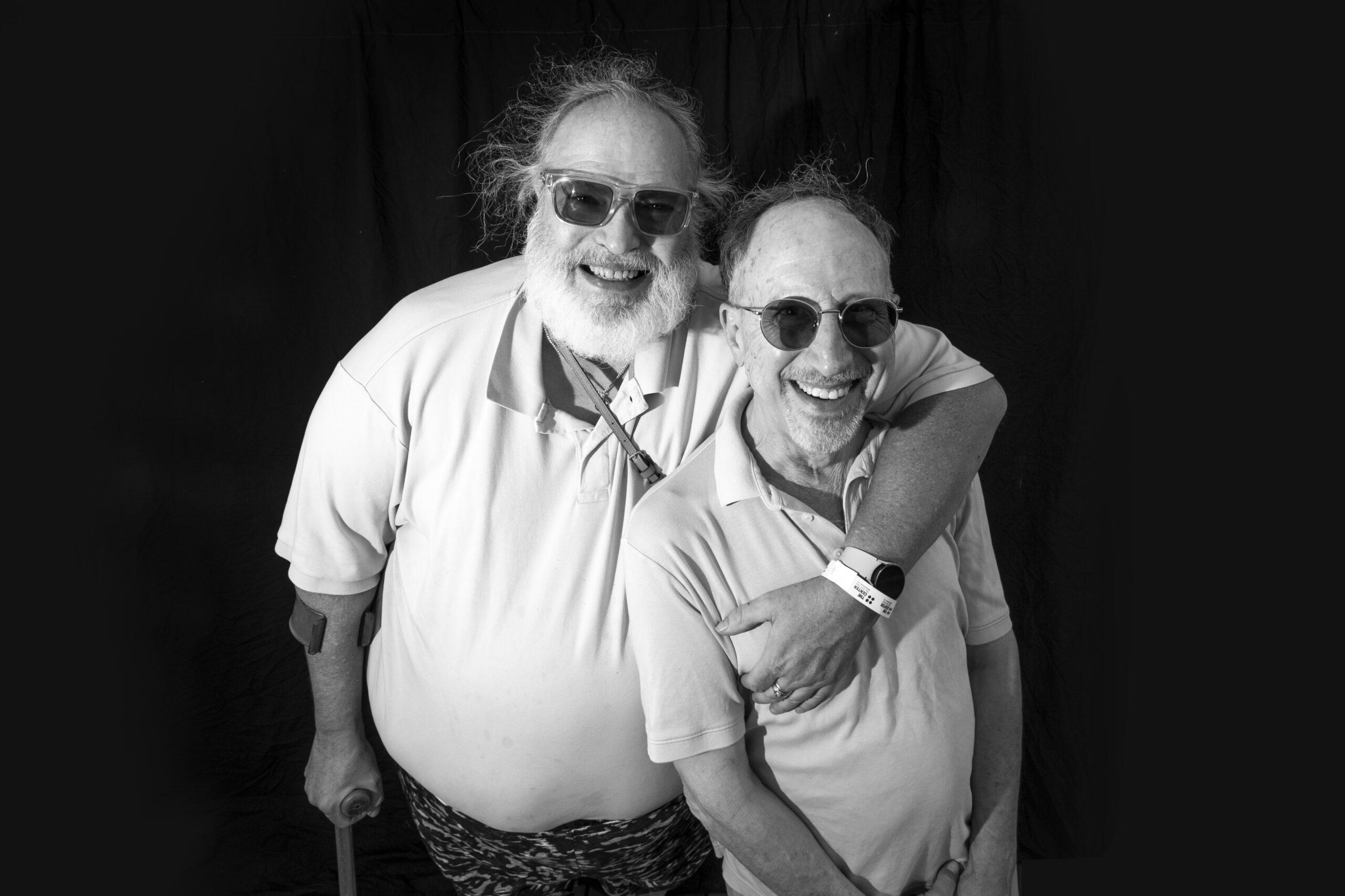Junjun Babauta was 10 years early to the Center on Colfax's West of 50 Tea Dance last week, but he knew he'd find what he needed at the Pride party for people over 50.
The 40-year-old was a Marine who served in Iraq during the "Don't Ask Don't Tell" days, when he could get in trouble for talking about his sexuality. Decades later, after he left the service and fully came out as gay, he still felt like he had something to learn. He began exploring his gender identity, and he was searching for ways to understand himself, so he turned to his elders for guidance.
"There's so many people in that group that have shown me things that I never would have expected, and hearing their experiences is therapeutic. It's helpful. it helps me on my own journey, so I'm very grateful to be here," he said as the party kicked off and drag queens crooned on the Center's rooftop. "I'm seeking enlightenment. I'm seeking spiritual awakening."

Babauta was the minority in this group. Most attendees were over 50, as advertised, but they came to find a similar communion.
Teresa Marlowe said she was grateful the Center has programming specifically for her age group.
"It's just empowering. And a lot of LGBT, like a lot of older people, are alone. So it's always nice to come together," she told us.
"Besides, our music is better," her wife, Lynn, chimed in.

Rex Fuller, the Center's executive director, said the nonprofit's West of 50 program meets an important need. Beyond the annual PrideFest party, members of the group meet for weekly coffees and other hangouts.
"Many older adults can go towards isolation, and I think that's especially true for folks in the LGBTQ community, who may have lost relationships with family. So we're trying to help people find support and relationships like that, so that we can age in a heathy and good environment," he told us. "They really have been thriving and growing, which is exciting."
Fuller, who's also over 50, said he's been feeling that need more than he expected. He lost his husband in the pandemic's early days.
"It's something that I think about a lot now, because that was not the plan," he reflected.
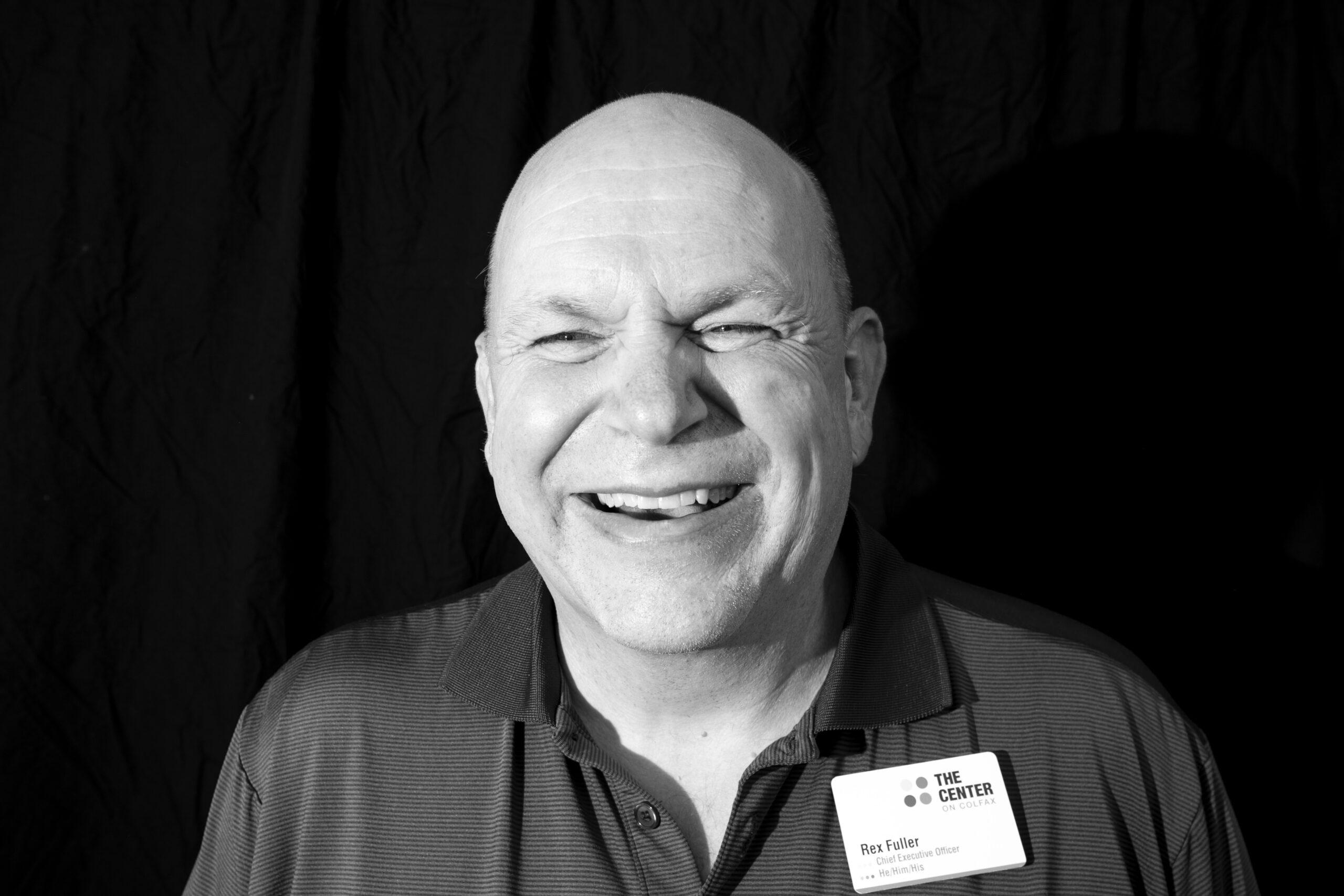
The threat of isolation was also on Michael King's mind, though in a different way.
"Denver has gotten so expensive that a lot of people in our senior group has had to move somewhere else, which is really sad," he said. "I really miss some of those people."
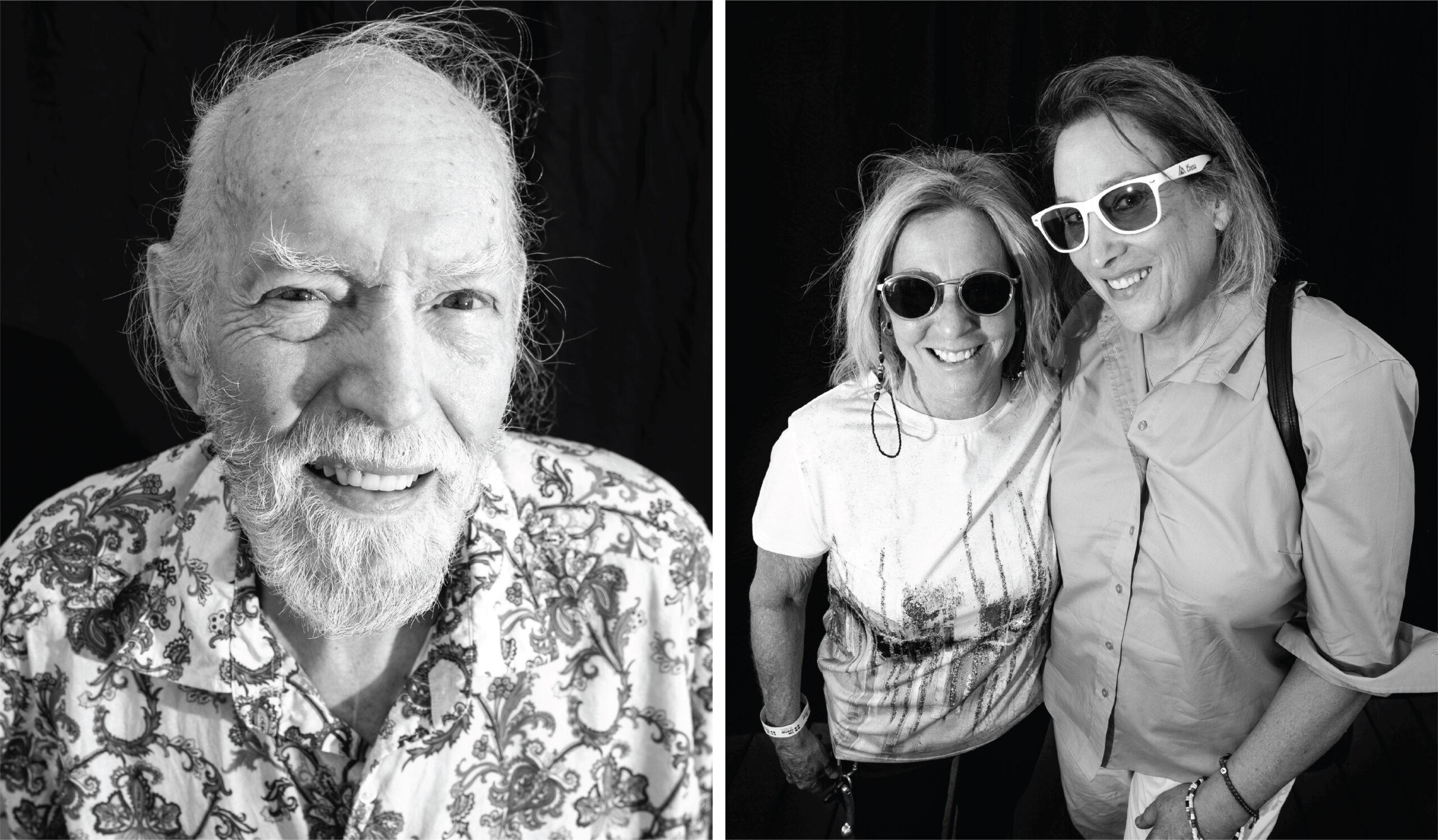
Things have been difficult for this community, but many of these elders said their long views on history gave them comfort to share.
This time last year, the Supreme Court's rollback of abortion rights came with a so-far hypothetical threat that marriage equality could also be on the chopping block. Last autumn, five people were murdered and a dozen other injured in a mass shooting at a Colorado Springs nightclub; the shooter was just sentenced to five consecutive life sentences. Meanwhile, legislators in states across the country have introduced hundreds of bills to curb trans people's access to healthcare and very existence.
The state of things influenced the Center's choice for PrideFest's theme: Proud Out Loud, a message of resistance to a tough moment.
Everyone we spoke to at the tea dance said they've been impacted by these difficult developments, but they also said it's hard to forget how far things have come, at least in Colorado.
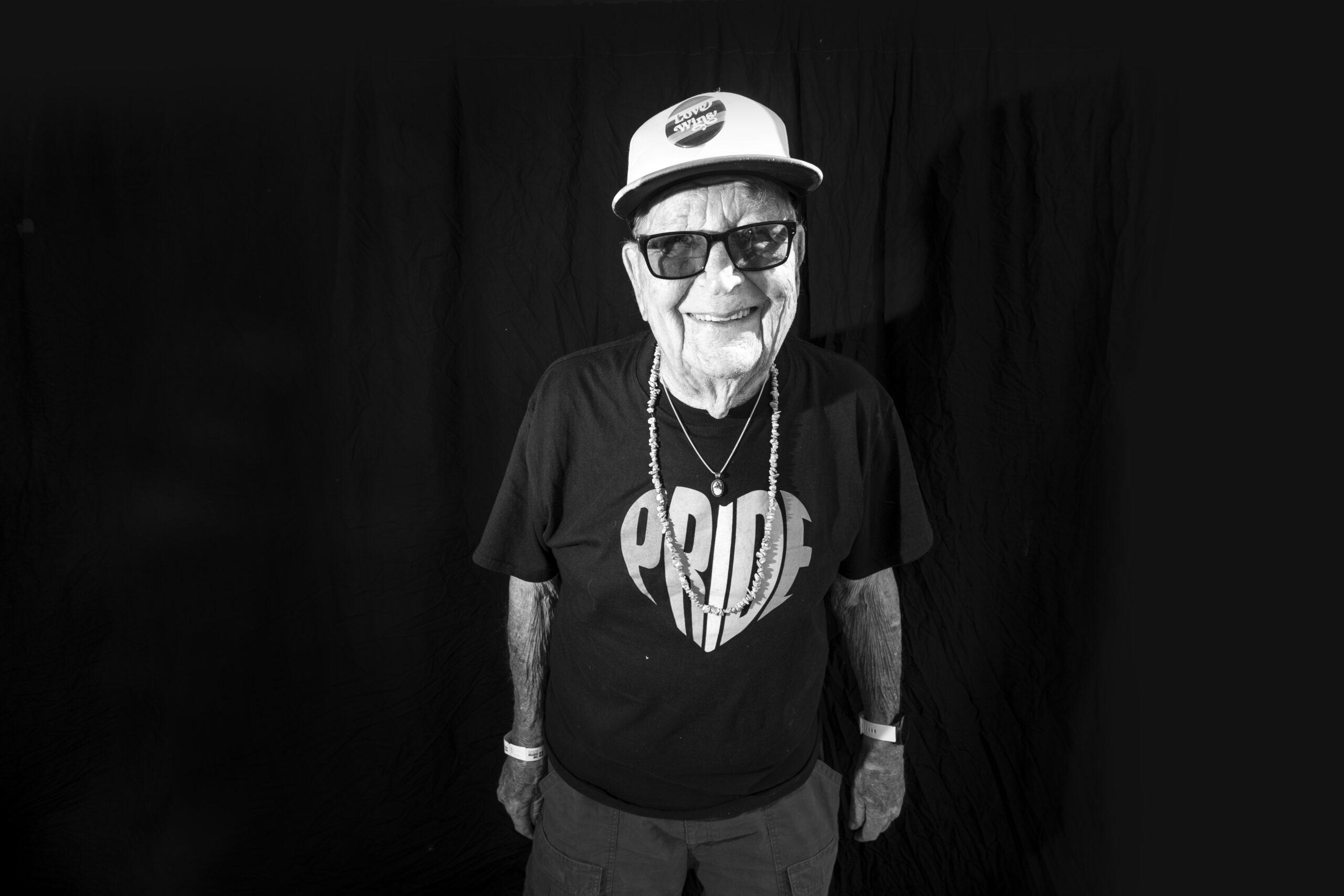
93-year-old Kenneth Felts came out when he was 90. He wrote a book about the experience after his story took over the internet, and said coming out would have been dangerous when he was a young man.
"I would have come out a long time ago," he told us. "The difference is that, at least for the general LGBT community, it's more accepting than it was. I don't have fear that I had at one time. I feel very comfortable."
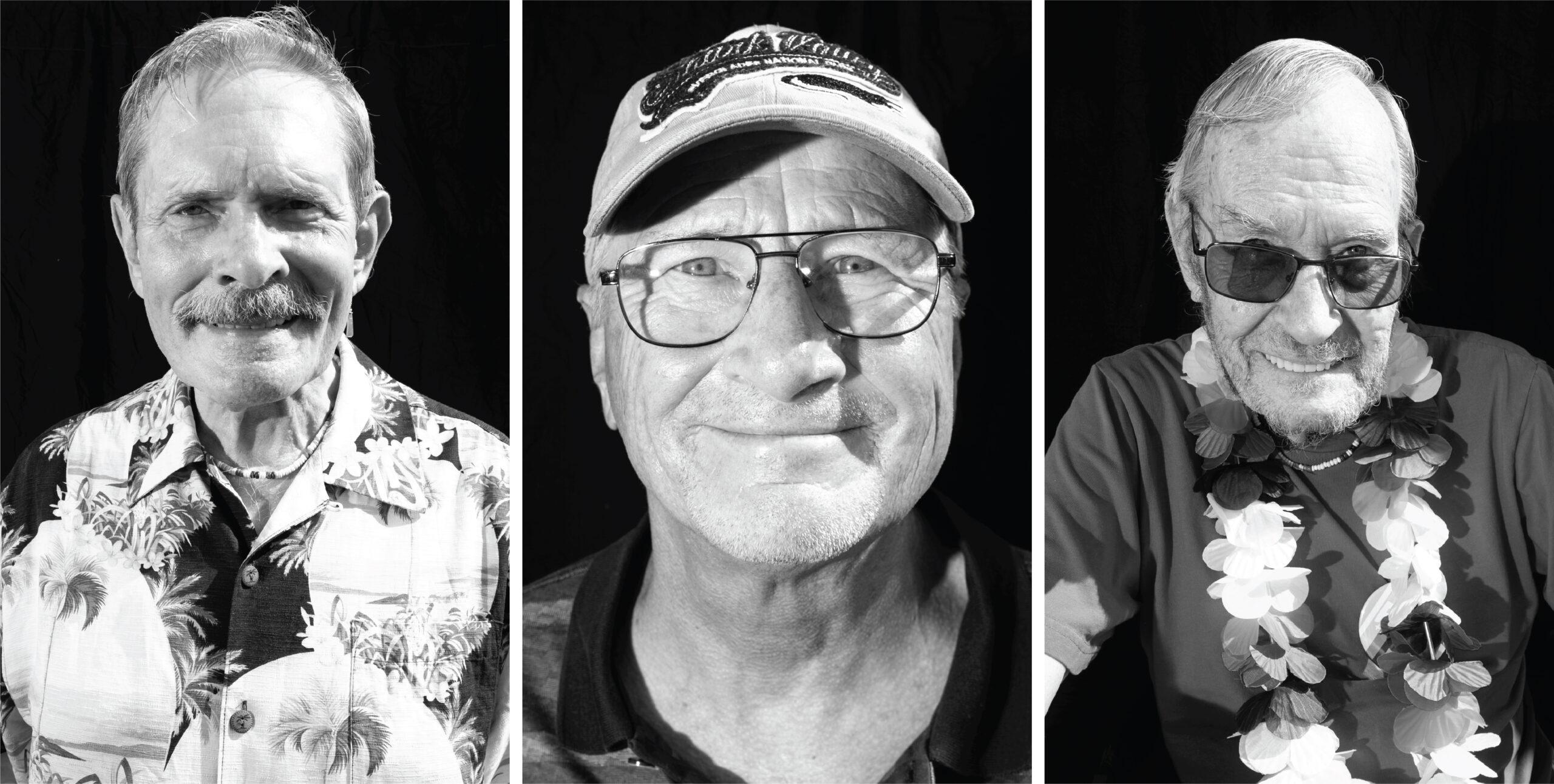
Lisa Stenmark said she's been thinking about both the past and future, too.
"When I was 20 years old, I used to fantasize with my then-girlfriend about being my age - older - because then we'd be old enough that we could hold hands and nobody would think that anything was going on," she told us.
Though she exists in a world of acceptance she never imagined possible, she is still unsettled by some of the things she's seen happen to her community. She said she views this "terrible moment" as both cause for alarm and a familiar part of a much longer cycle. In both cases, there's reason to fight back.
"The trick is not to get so wrapped up in our feelings of oppression that we forget that we oppress other people," she told us. "The battle doesn't end with my liberation. The battle never ends, because there's always going to be another group of people that small people pick on, and we have to take our experience of oppression and not turn them into something that makes us angry, but makes us passionate towards other people."

Dorothy Fernandez said she sees herself in young people's current struggles.
"I feel like a trans youth today probably feels a lot like a gay youth felt 35 years ago, not welcome in most places," she said. "That's very sad."
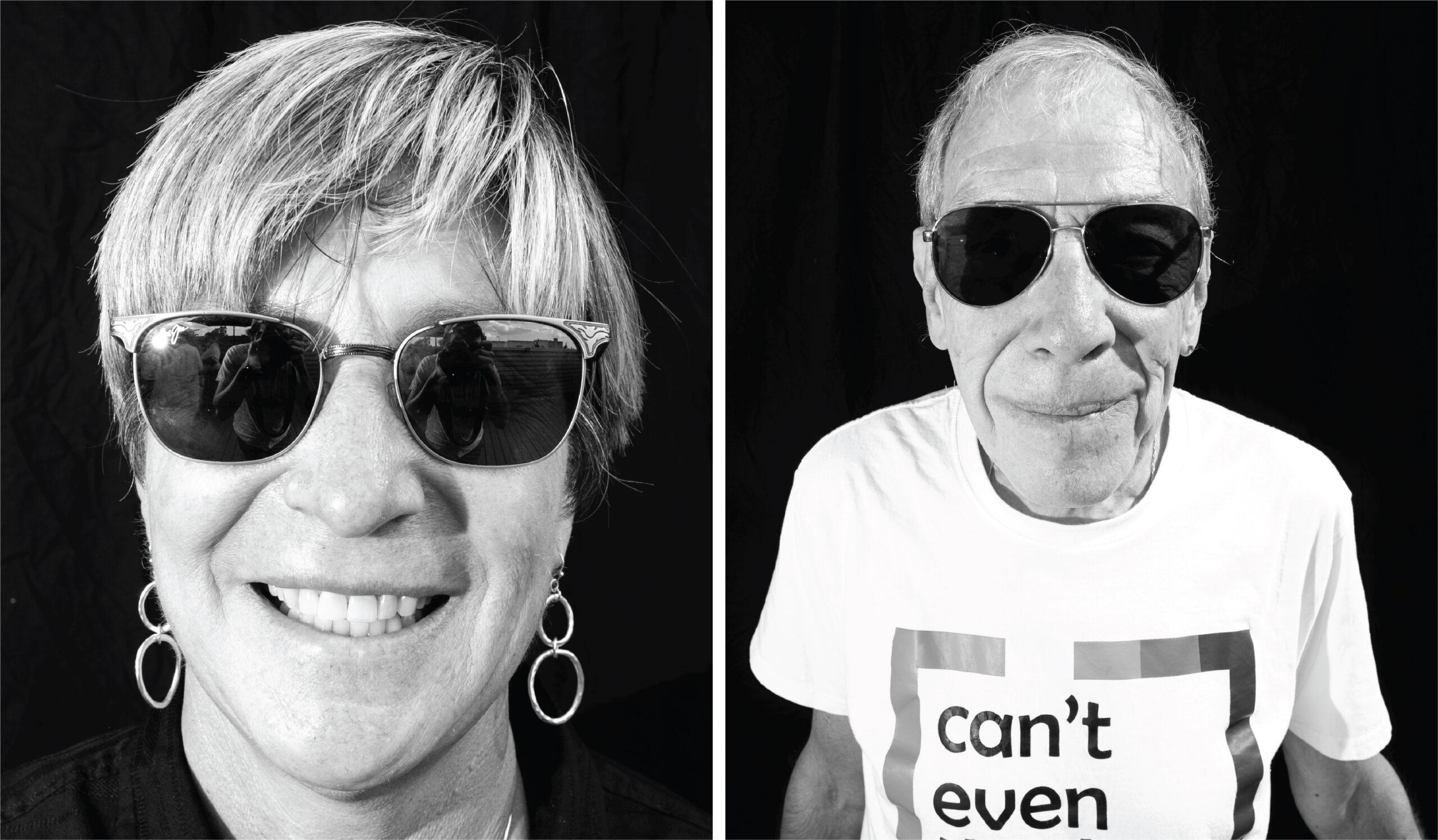
To that point, everyone we spoke to said they'd tell younger members of their community to just hang on.
Time has a way of changing people. While many of them felt hopeless at one point in their lives, they emerged from that fog.
"Never give up. First of all, it only gets easier the older you get, because what you do is you figure the game, and then you realize the rules to play and the rules to break," Sage Hoebermann, who said he was young about a "hundred thousand years ago," told us. "All you have to do when you're young is hold on because it gets better. And don't listen to what your parents say or what society says. There's times when I wanted to give up, but that's because I lost perspective."
